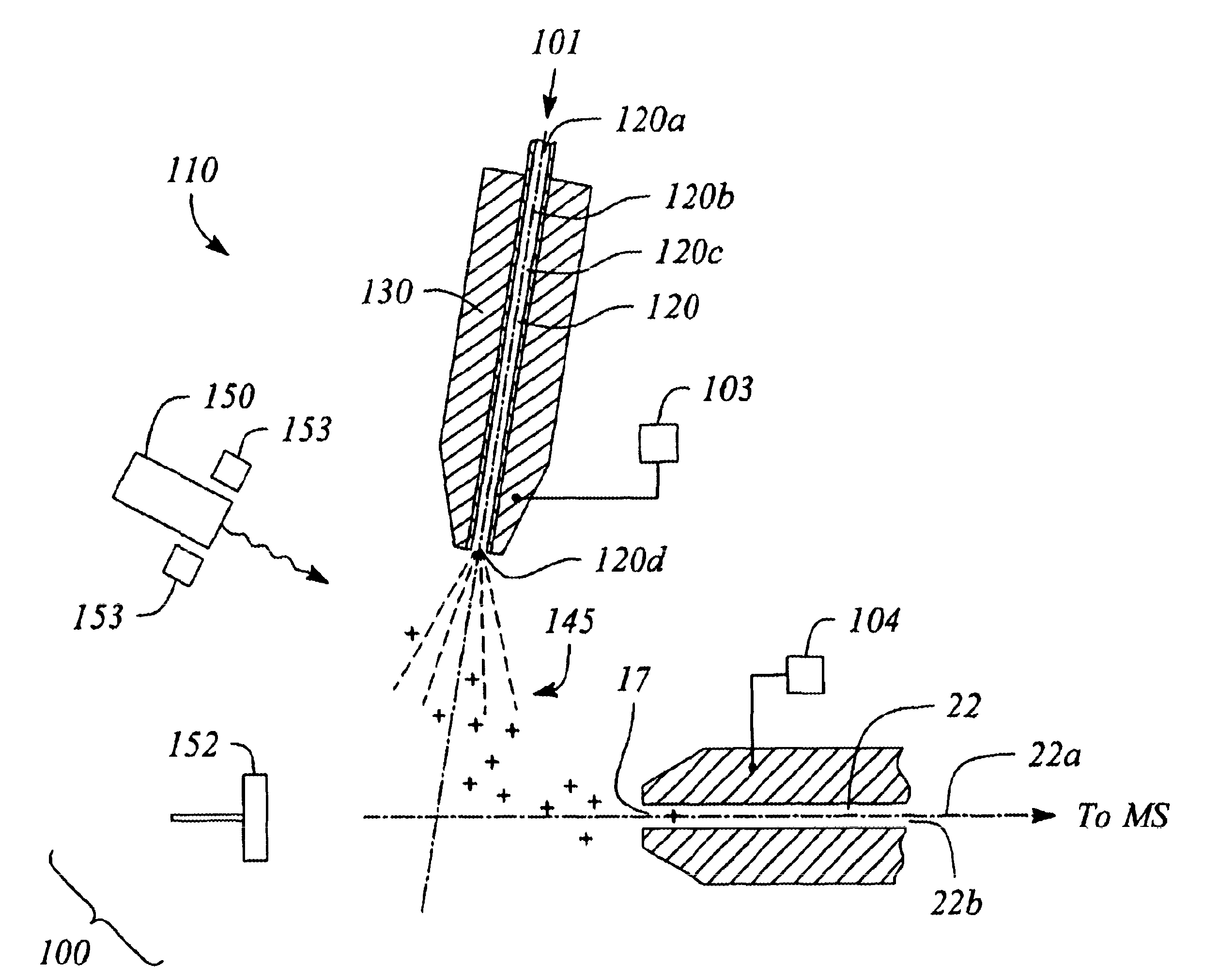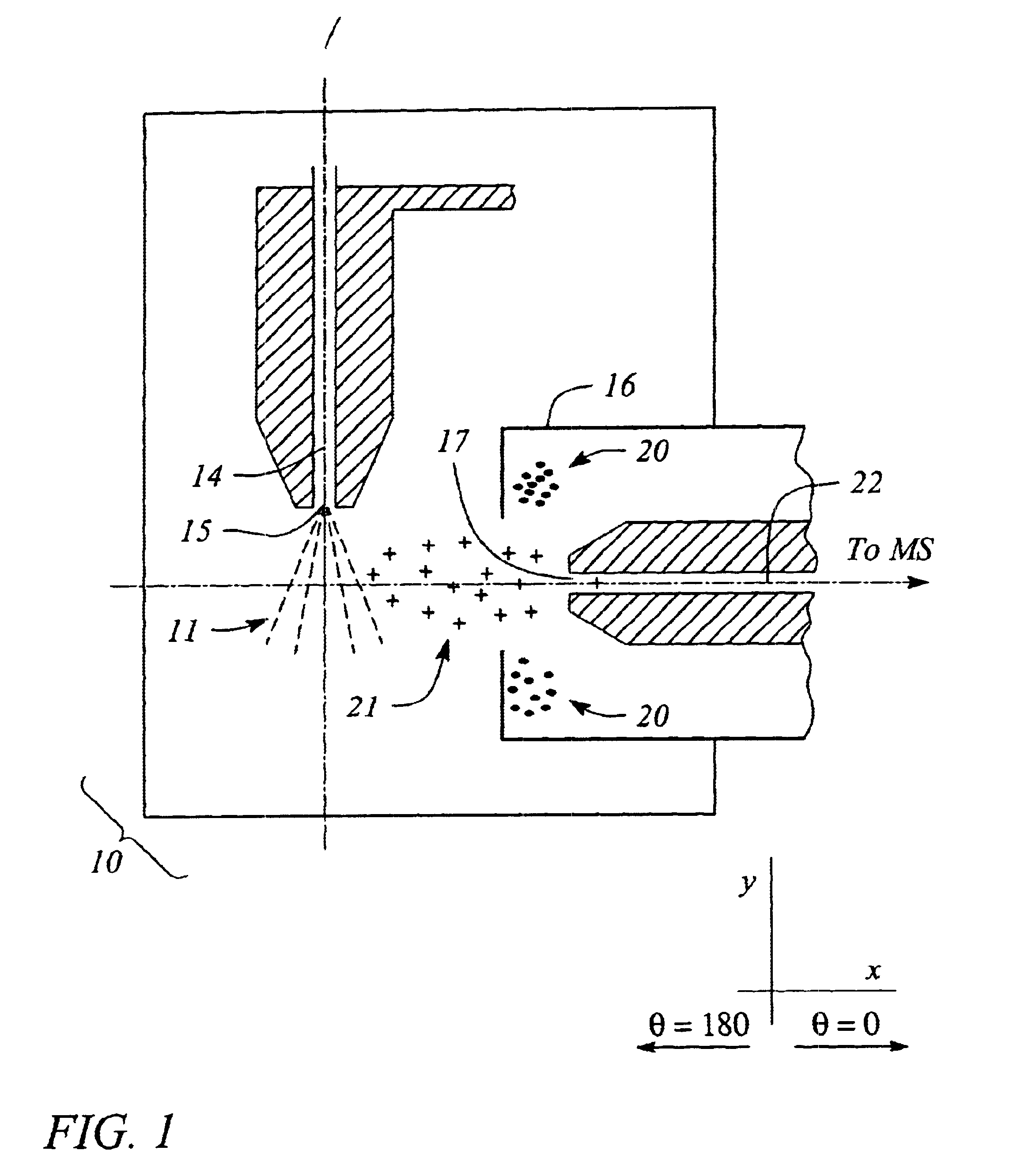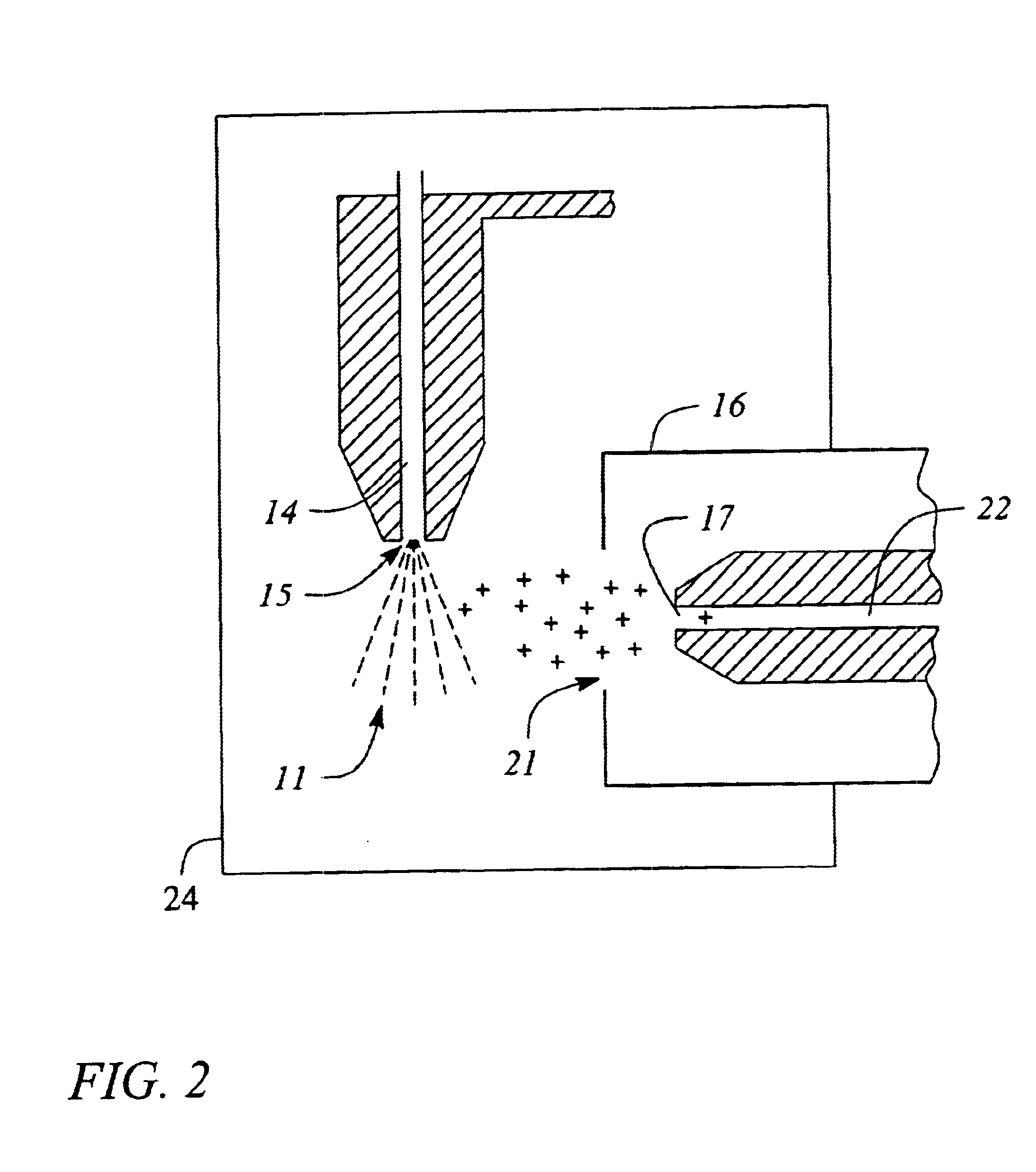Ion sampling for APPI mass spectrometry
a mass spectrometry and appi technology, applied in the field of liquid chromatography and mass spectrometry, can solve the problems of poor reproducibility, poor performance of flow splitters, and problems such as plugging
- Summary
- Abstract
- Description
- Claims
- Application Information
AI Technical Summary
Problems solved by technology
Method used
Image
Examples
Embodiment Construction
A number of different configurations have been proven possible. Examples of certain tested configurations follow:
FIG. 2 shows a configuration of the invention in which a third voltage source, a plate 24, is positioned beside the exit 15 of the first passageway 14 and distal to the side near to which the first voltage source, the opening 21 in the housing 16, and the opening 17 to the second passageway 22 are positioned. The plate 24 runs a positive voltage relative to the charge on the housing 16. Experiments show the electrosprayed aerosol "sees" a mean voltage between the plate 24 and the charged housing 16. Results suggest that the repeller effect may be captured and ion collection yield increased by careful sculpting of both the electric field and the gas flow patterns.
FIG. 3 shows a two-voltage source system as in FIG. 2 with the addition of a grounded spray chamber 26. The spray chamber 26 operates to contain the electrosprayed aerosol and route condensed vapor to waste.
FIG. 4...
PUM
| Property | Measurement | Unit |
|---|---|---|
| angle | aaaaa | aaaaa |
| angle | aaaaa | aaaaa |
| angle | aaaaa | aaaaa |
Abstract
Description
Claims
Application Information
 Login to View More
Login to View More - R&D
- Intellectual Property
- Life Sciences
- Materials
- Tech Scout
- Unparalleled Data Quality
- Higher Quality Content
- 60% Fewer Hallucinations
Browse by: Latest US Patents, China's latest patents, Technical Efficacy Thesaurus, Application Domain, Technology Topic, Popular Technical Reports.
© 2025 PatSnap. All rights reserved.Legal|Privacy policy|Modern Slavery Act Transparency Statement|Sitemap|About US| Contact US: help@patsnap.com



